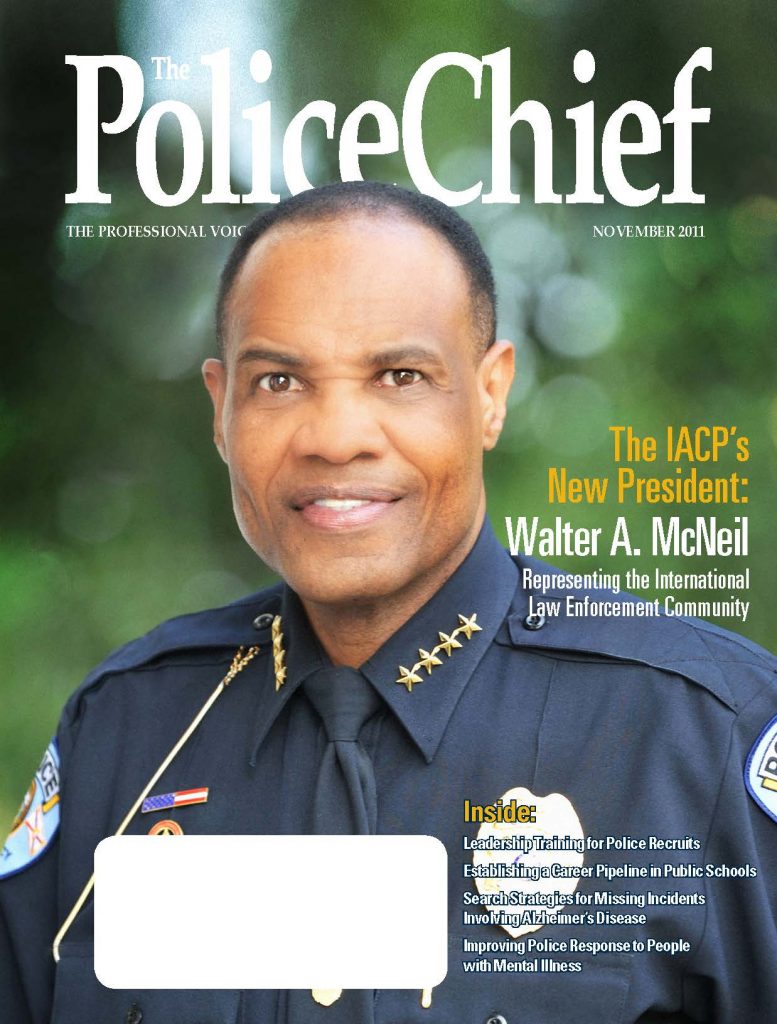
November 2011
Walter A. McNeal, chief of police, Quincy Police Department, Quincy, Florida, was sworn in as IACP president during the 118th Annual IACP Conference in Chicago, Illinois, October 26, 2011.
The IACP has a long history of promoting professional law enforcement through the development, the conduct, and the support of police education and training. Inside this issue of Police Chief magazine, you will find articles detailing best practices for promoting the police profession and leadership skills through training and for effective interaction with populations that present challenges to law enforcement: people with mental illness and people with Alzheimer’s Disease.
Articles
-
Police Education and Training: An Intelligence-Led Future
The IACP has a long history of promoting professional law enforcement through the development, the conduct, and the support of police education and training. The IACP Education and Training Committee,... -
Establishing a Career Pipeline in Public Schools
For the past several years, the California POST Commission has committed resources to an array of symposiums and publications focused on the identification of best practices for recruiting peace offic... -
IACP Names New Executive Director, Bart R. Johnson
-
Leadership Training for Police Recruits Creating a Foundation for Professional Excellence
Words spoken at the Ontario, Canada, Police College (OPC) in July by Chief Robert Davis of the Guelph Ontario, Canada, Police Service made an impression on recruits. The occasion was the most recent M... -
Total Integration of Executive Training and Higher Education: The Georgia Law Enforcement Command College
August Vollmer, during the early twentieth century, as chief of police in Berkeley, California, argued for the professionalism of police officers through the use of scientific training and methods of ... -
NAMI and Law Enforcement Executives: Working Together to Improve Police Responses to People with Mental Illness
The National Alliance on Mental Illness (NAMI) is the nation’s largest grassroots organization of people living with mental illness and their families. NAMI served on the advisory group for the 2009... -
Understanding and Helping Drivers with Alzheimer’s Disease
Alzheimer’s disease, the most common form of dementia, offers unique challenges for law enforcement as the presence of this chronic disease may impair many older adults’ abilities to operate motor... -
Missing Incidents in Persons with Alzheimer's Disease: Current Research and Search Strategies
About three hours after I [Todd L’Herrou] arrived on the scene and my trained searchers had entered the field, Team Charlie was on the radio, requesting that the other teams be sure that their ra...

